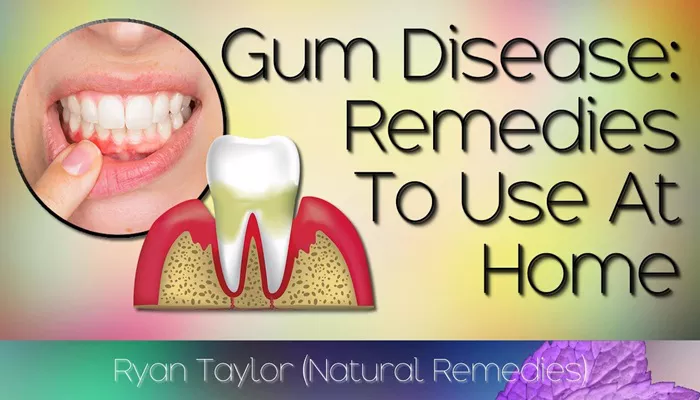Gum infections, also known as periodontal infections, can be both painful and problematic, affecting not only oral health but overall well-being. These infections often arise due to bacterial buildup in the mouth and can lead to gum inflammation, pain, and even tooth loss if left untreated. Healing a gum infection quickly requires a combination of proper dental care, effective treatments, and good home practices. This comprehensive guide will explore the fastest ways to heal a gum infection, offering insights into prevention, treatment options, and tips for maintaining oral health.
Understanding Gum Infections
Gum infections typically occur due to poor oral hygiene, which leads to the accumulation of plaque—a sticky film of bacteria—on the teeth. When plaque is not removed through regular brushing and flossing, it can harden into tartar, which further harbors bacteria. This bacterial growth causes inflammation and infection of the gum tissues, leading to symptoms such as redness, swelling, bleeding, and pain.
SEE ALSO: Do All Painful Cavities Require Root Canal Treatment?
There Are Two Main Types of Gum Infections:
Gingivitis: This is the early stage of gum disease characterized by gum inflammation and bleeding. It is usually reversible with proper dental care.
Periodontitis: This advanced stage of gum disease involves deeper infection and damage to the supporting structures of the teeth, including bone loss. Periodontitis requires more intensive treatment and management.
Prompt Treatment for Gum Infections
The fastest way to heal a gum infection involves addressing both the infection and its underlying causes. Here are the key steps to take:
Professional Dental Cleaning
Scaling and Root Planing: This is a deep cleaning procedure performed by a dentist or dental hygienist. Scaling removes plaque and tartar from the tooth surfaces and below the gumline, while root planing smooths the root surfaces to prevent bacteria from reattaching.
Antibiotic Therapy: Your dentist may prescribe antibiotics or antimicrobial agents to help control bacterial infection.
These can be topical, applied directly to the gums, or systemic, taken orally.
Antiseptic Rinses
Chlorhexidine Gluconate: This prescription mouthwash is effective in reducing oral bacteria and inflammation. It is commonly used for short-term treatment to complement other therapies.
Essential Oils: Mouthwashes containing essential oils like eucalyptus and thymol have antimicrobial properties and can help reduce infection and inflammation.
Medications
Pain Relievers: Over-the-counter pain relievers such as ibuprofen or acetaminophen can alleviate discomfort associated with gum infections.
Antibiotics: In cases of severe infection, your dentist may prescribe a course of antibiotics to control bacterial growth and prevent systemic spread.
Improved Oral Hygiene
Brushing and Flossing: Maintain a rigorous oral hygiene routine by brushing twice daily with fluoride toothpaste and flossing at least once a day. This helps remove plaque and prevent further infection.
Use of an Electric Toothbrush: Electric toothbrushes can be more effective in removing plaque compared to manual brushing, especially for individuals with gum disease.
Home Remedies
Salt Water Rinses: Rinsing your mouth with a warm salt water solution (1 teaspoon of salt in a glass of warm water) can help reduce inflammation and promote healing.
Aloe Vera: Aloe vera gel has natural anti-inflammatory and antibacterial properties. Applying it to the gums can soothe irritation and support healing.
Lifestyle Adjustments
Dietary Changes: Consume a balanced diet rich in vitamins and minerals, especially Vitamin C, which is crucial for gum health. Avoid sugary and acidic foods that can exacerbate gum disease.
Smoking Cessation: Smoking impairs gum health and slows down the healing process. Quitting smoking can significantly improve your gum health and recovery.
Regular Dental Checkups
Routine Exams: Schedule regular dental checkups to monitor your gum health and address any issues before they become severe.
Professional Advice: Consult your dentist for personalized recommendations and adjustments to your treatment plan based on your specific condition.
Preventing Future Gum Infections
Preventing gum infections is crucial for maintaining long-term oral health. Here are some tips to reduce the risk of future infections:
Consistent Oral Hygiene
Proper Brushing Techniques: Brush your teeth for at least two minutes, ensuring you reach all surfaces and gently brush your gums to stimulate blood flow.
Regular Flossing: Floss daily to remove plaque and food particles from between your teeth and below the gumline.
Healthy Lifestyle Choices
Balanced Diet: Eat a diet rich in fruits, vegetables, and whole grains.
Avoid excessive consumption of sugary snacks and beverages.
Hydration: Drink plenty of water to help wash away food particles and bacteria from your mouth.
Dental Treatments
Dental Sealants: For individuals at high risk of gum disease, dental sealants can provide an additional layer of protection against plaque buildup.
Routine Cleanings: Regular professional cleanings every six months can help prevent plaque and tartar accumulation.
Conclusion
Healing a gum infection quickly involves a combination of prompt professional treatment, effective home care, and lifestyle adjustments. By addressing the infection promptly and adopting good oral hygiene practices, you can reduce inflammation, alleviate pain, and promote faster healing. Regular dental checkups and preventive measures are essential for maintaining gum health and preventing future infections.

